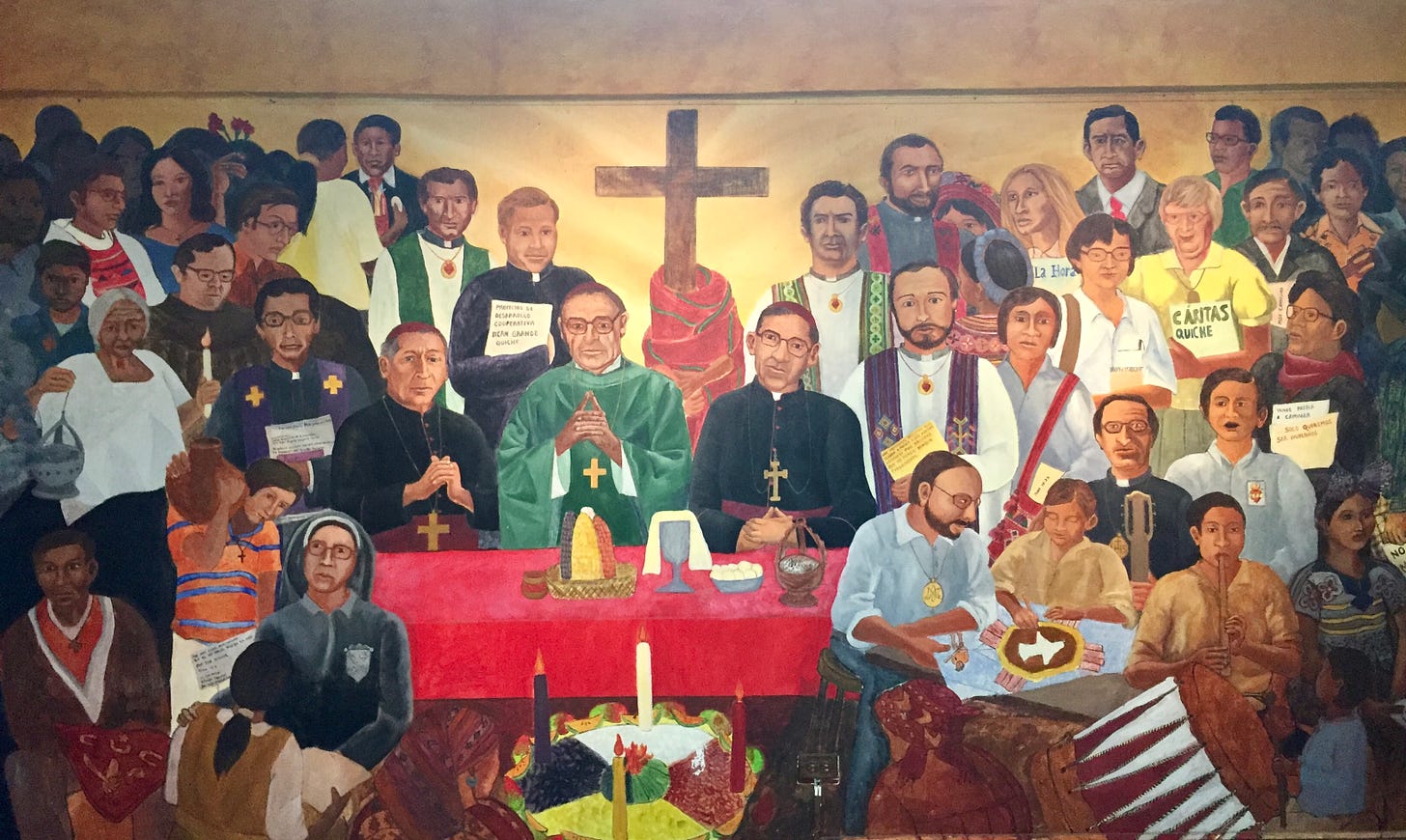
During this season of Lent, I have been struggling with my identity as an evangelical Christian. Over the last forty days, I have seen violence, injustice, and discrimination perpetrated by Christians in my immediate community. My blood has boiled more than once. In several occasions I have wanted to act violently in return. I have wrestled with my identity because I wanted a violent God to justify my desires for violence.
This past week, each one of the texts leading to Good Friday has impacted me deeply. Each day, the gospels have revealed to me how tangled I am in violent ideologies. Even more so, I have had to accept that violent theologies still creep into my heart as I want to justify my violence and the exclusion of others in the name of Angry God (See my book A human Catechism for further explanation). I have realized that I still form and shaped my identity over and against those I consider my enemies. My faith still has violent vestiges.
Today, we read In John 18:1-19:42 about Jesus’ arrest, trial, and execution. As I explore and reflect on this passage, I notice that Jesus is constantly trying to untangle himself from the ideologies of his time. The Pharisees saw him as blasphemous, thus attempted to entangle him in their religious ideology. The Romans saw him as an agitator, and tried to wrap him in their political ideologies to control the occupied land. Finally, his disciples, especially Peter, saw him through the eyes of their political and military ideologies.
Amid all of that, Jesus keeps repeating in different ways that he is not tied to any ideology. He reprimands Peter in his ideological violence saying, “put your sword away.” As the Pharisees accused him of heresy, he replied with questions instead of statements and apologetics. When Pilate asks if he is King, he replies quite enigmatically, “My Kingdom is not of this world. If it were, my servants would fight to prevent my arrest by the Jewish leaders. But now, my kingdom is from another place.” In summary, Jesus untangles himself from past and contemporary ideologies.
Jesus refused to form his identity over and against his accusers, thus opening the door for us to find ways of being otherwise amid the polarized and violent times we live in. As a result of Jesus’ refusal to identify himself with an ideological framework, he occupied the place of the victims who are crushed by murderous legalism.
In the 1970’s, Jürgen Moltmann criticized the church because it was not following the crucified God. His criticism is very relevant for us today. He argued that the more theology and the Church try to be relevant to the current context, the more they lose their true self. The more we try to solidify our identity by affirming our dogmas, rites, and moralism, the more irrelevant Christianity becomes. As we make Christianity irrelevant we, become more fearful. As a result, we default to fundamentalist ideologies that render Scripture powerless. We make the Bible an unquestionable authority, thus turning Christian ethics into a murderous legalism. We lose the call to love our world and seek its peace, to love God and our neighbor.
As I think back to what I have seen and experienced over the last forty days, I have come to realize that evangelical Christianity is failing to follow Jesus. We try to make our theologies relevant instead of pointing to the crucified Christ. We defend our political ideologies instead of putting our eyes on Jesus’ non-identity. We are willing to exclude others in the name of God instead of standing in solidarity with those who suffer violence and exclusion.
As we enter the silence of Saturday, the silence of Jesus’ tomb ought to make us reflect about how we form our identity. Do we shape it over and against those we consider our enemies and rivals? Or, are we willing to let the crucified God shape who we are with and for the most vulnerable?



“As we enter the silence of Saturday, the silence of Jesus’ tomb ooought to make us reflect about how we form our identity. Do we shape it over and against those we consider our enemies and rivals? Or, are we willing to let the crucified God shape who we are with and for the most vulnerable?”
Wow I will be chewing on this mañana. Gracias for this reflection 🙏🏼
🙏🏼 gracias.